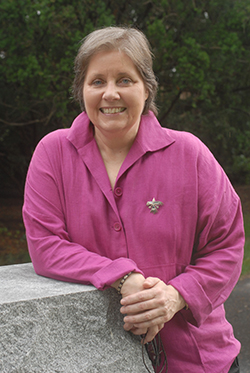Coming out at school worth the risk, study shows
The long-term benefits of LGBT youth coming out at school may outweigh short-term negative consequences related to bullying according to a new study from San Francisco State University's Family Acceptance Project.

Caitlin Ryan, director of the Family Acceptance Project
LGBT youth continue to face victimization at school for revealing sexual orientation and gender identity, but the research published in the 2014 year-end issue of the American Journal of Orthopsychiatry shows that children and adolescents who come out at school report higher levels of well-being, and lower levels of depression as adults.
The study, the first to document the benefits of being out during adolescence on young adult adjustment, highlights the important role schools can play in supporting LGBT youth, said Caitlin Ryan, founder and director of the Family Acceptance Project and a co-author of the study. Adults often counsel LGBT youth to hide their LGBT identity at school to protect them from harm, but the research indicates that in fact coming out can be more effective in promoting an adolescent’s well-being.
"These findings really speak to the need to put in place many more structural and social supports for our LGBT kids," Ryan said, including ensuring schools have policies in place for reporting discrimination, training teachers and administrators to recognize harassment and incorporating LGBT topics into the curriculum. "Schools can also help families accept and support their LGBT children, normalize their identity and help them develop positive coping skills, all of which can have a significant impact on a child's well-being."
Previous research from the Family Acceptance Project has shown that when families reject their LGBT children, those children are at increased risk for depression, suicidal behavior, drug abuse and HIV.
LGBT youth are coming out at increasingly younger ages, but no studies had examined how revealing sexual orientation and gender identity at school affects a person's long-term well-being. To do so, Ryan and her colleagues at the University of Arizona and Kent State University surveyed 245 LGBT adults ages 21 through 25 about whether they disclosed their LGBT status at school, the extent to which they were victimized for their LGBT identity, and their levels of depression, life satisfaction and self-esteem as adults. They found that, while being out in school was associated with more victimization, it had a stronger association with higher well-being as an adult.
The reason, Ryan said, is likely that LGBT youth who are out are more likely to seek out LGBT resources for support, to develop coping skills related to managing their LGBT identity and to come into contact with other LGBT individuals who can become role models.
"As these youth find friends and adults who value them, and as they receive opportunities to make a difference in the community, they're increasing their sense of self worth," she said. "If you have a high sense of self-worth, you're going to live your life with better self-care and be in more supportive relationships than if you believe you're not a good person."
Because of the clear link between family rejection of LGBT youth and increased health risks, the Family Acceptance Project has developed research-based family intervention strategies, resources such as multilingual and faith-based family education materials and short documentary films designed to help families accept and support their LGBT children and adolescents.
"As a society, we have to go beyond just protecting LGBT young people from harm, we also have to promote their well-being as we do for all children and adolescents," Ryan said.